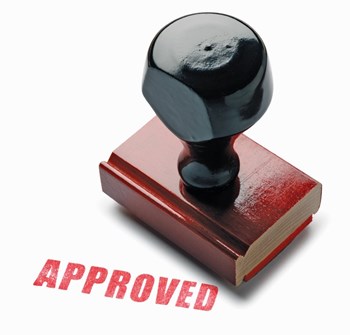
Tighter lending requirements for Federal Housing Administration (FHA)-backed mortgages for condos have put financial and administrative pressure on condos around New England at a time when many are ill prepared for any new challenges. The most onerous of the new requirements are mandated reserve fund contributions, a 15 percent limit on condo fees delinquencies, and the specification that the condominium itself obtain FHA approval – this resulting in reams of additional paperwork for community associations.
The new requirements aren’t mandatory and they don’t affect existing community associations directly, but they do affect the ability of owners to sell their units. FHA-backed loans have taken over the lion’s share in some markets because they allow modest 3.5 percent down payments, making them the only option for many first-time buyers and others without a lot of cash on hand.
Condo associations that don’t seek FHA-approval under the new guidelines could find themselves losing property values and community support, warned National Condo Advisors CEO Orest Tomaselli at the New England Condo-minium Expo this spring.
“If there is no financing [for condo sales], it’s a problem. People start paying their maintenance [fees] late. People stop caring about the development because they can’t refinance. They can’t get out, they can’t sell their units, nobody can buy,” he said.
NE Paying for Other Regions’ Excesses
The requirements have not been popular in the region, with some saying New Englanders are paying the price for sub-prime loan excesses and large, failed developments in other parts of the country. Acknowledging that the guidelines have been enacted to safeguard taxpayer money, realtor Paul Yorkis said, “I don’t mind if the FHA is protecting the taxpayers, but the problems they are trying to protect taxpayers from have happened in Florida, have happened in Nevada, havehappened not in the Northeast that I know of,” said Yorkis, president of Patriot Real Estate, Inc., in Medway, Massachusetts, who also serves on the Board of Directors of the Greater Boston Association of Realtors.
“In New England, we typically don’t see 400-, 600-unit condominium complexes being built. When you see that, it’s the exception to the rule. In Florida and Arizona and other parts of the United States, those are considered small to modest condominium developments. So what's happened is the small projects – like the 20-unit development at Pine Ridge, or the 18-unit development in Medway –you look at them and they're being treated and being controlled in the same way as a large project, and it’s overkill,” he said.
“I would have preferred that the FHA regionalize its policies based upon market conditions, as opposed to setting a national standard, one-size-fits-all, which doesn't work,” he said.
Popular or not, the standards are affecting condos across New England, both existing condominiums and projects under development. The majority of the standards, discussed below, are aimed at existing communityassociations.
10% Reserve Requirement
The most problematic of the new FHA regulations for community associations is the requirement that annual budgets contain a minimum 10 percent reserve fund contribution. The mandate comes at a time when many cash-strapped condos have cut back on funding reserves in recent years.
At the New England Condo Expo seminar detailing the new regulations, Tomaselli called the reserve mandate the “biggest issue” facing the condo industry. “I can’t wait for someone to write an article that says, ‘Everybody’s maintenance is going up 10 percent,’ because that is what is going to happen. There is not a choice anymore,” said Tomaselli, whose White Plains, New York, firm helps condos achieve FHA approval.
The lone exception to the 10 percent requirement, Tomaselli noted, are condos that have a legitimate reserve study that mandates a lesser financial contribution –two examples being a newer community with low maintenance requirements or “green” buildings that only require 2 to 3 percent reserves because of long-lasting green materials. “That’s a reason for doing a reserve study,” Tomaselli said.
15% Delinquency Threshold
Another problematic requirement mandates that FHA-backed loans will not be approved at condos with more than a 15 percent delinquency rate on monthly condo fees.
According to Tomaselli, some condominiums are on thin ice in this department. “If you have a bad month, if you have some homeowners who have lost their jobs, it’s very easy to go above that 15 percent. And the lender cannotlend in that condo if you have more than 15 percent,” he said.
Attorney Stephen Marcus says condos have the ability to keep their delinquencies beneath 15 percent if they are “aggressive” in pursing collections. “The law is clearly on the side of an association being able to collect its money if it keeps the pressure on the unit owner and the lender to pay the condominium fees,” said Marcus, a partner with Marcus, Errico, Emmer & Brooks, PC, in Braintree, Massachusetts.
Using the super lien law in Massa-chusetts (and other states where it’s available) and moving quickly on the legal front “makes a world of difference” in keeping delinquencies under control, Marcus said.
Entire Condo Must Be Approved
The part of the new regulations that’s generating considerable office work for condos is the requirement that the entire condo has to apply for and receive FHA approval for individual loan applications to even be considered.
According to Marcus, the time and money involved in the application process is considerable. “There’s a lot of documentation that needs to be provided, and there’s a legal opinion that’s required,” said Marcus. “The managers are typically charging a fee for putting together some of the documents. And the lenders or approval companies are typically charging a fee for submitting it to FHA. Associationscould be spending $3,000 to $5,000 for the approval.”
Lender Must Perform Due Diligence
Adding to the paperwork for condos is the requirement that potential lenders must do their own research and independently certify that the condo is FHA-compliant. And if one bank certifies that a condominium is FHA compliant, that certification won’t be valid for the second, third or fourth bank that comes along –they all will need documents and paperwork from the condo.
To make it easier for potential buyers to obtain loans on individual condo units, Tomaselli suggests that the condominium develop relationships with three or four loan providers, which will then become open to making loans to buyers. “Let them [lenders] know the project [condominium] is FHA-approved, is Fannie Mae-approved and ‘this is the way we got it approved.’ We think it’s an integral tool for a property manager and the board… to help their developmentsout,” said Tomaselli.
Marcus noted that the condo’s workload for loan approval will decline after the initial FHA loan approval is run through for one lender. “There will be some – but I don't think it’s going to be [a lot] – once the approval is done, I think the managers will charge a fee for doing the initial approval, but I think after that the typical questionnaire that they fill out, they will chargea fee for it, but not a dramatic fee. I think the lender questionnaire will answer most of the new questions that the lender needs to know.”
680 Credit Scores
On the consumer loan side, requirements for the loan seeker have been tightened up – the most dramatic beingthat successful FHA loan applicants must have a minimum 680 credit score, said Tomaselli. “That [680] might not seem like a lot, but most people are around 660 credit score,” he said. “The buyer pool for people who can actually obtain a mortgage in a condominium has shrunk to such a small number. These Fannie Mae requirements make it difficult for a Joe average buyer to buy a unit.”
If buyers cannot get an FHA-backed loan, Tomaselli says they will be forced to obtain conventional financing with a minimum 20 percent down paymentrequirement. “If you think about the numbers, on average, condominium units across the country are looking at a $350,000 sales price. You’ll need to get $70,000 in cash plus closing costs to buy the unit. I know a lot of people, but I don't know a lot of people who have $70,000 in cash.”
Yorkis said he is not seeing a tremendous number of unqualified buyers’ loans falling through because word is getting around that prospectivebuyers need to be financially solid to even apply for FHA-backed loans. “Mortgage representatives have done a very good job of telling prospective borrowers what they need to do, so the buyers are saying to themselves, ‘I have to do all this stuff. I'm going to wait until I’ve done everything, and until my records are in order and credit scores up, until we have more money to put down.’ I think the level of understanding has gone up considerably,” he said.
Buyers who are obtaining FHA-backed mortgages tend to be “smart buyers” who understand the new rules of the game, said Yorkis. “They’re wise about their use of credit. They’ve beenwise about paying the bills on time.
They have developed a relationship with the lender or mortgage rep, somebody who knows them as being well-documented in terms of their employment history, all that stuff. It means the lender knows who they’re lending to. And the smart buyer createsthat relationship, works with that lender, makes sure that lender has all the documentation. Make sure that they keep everything up to date, and I found that the smart buyers who do that have a much easier time.”
New Condos Have Tougher Rules
While the new FHA regulations haveput the squeeze on existing condos, new developments are being pinched even harder.
The hardest requirement is an outright prohibition on renting out condos in new developments – a tactic which has helped many developers with cash flow until sales kick in. Tomaselli said the new requirement has “plunged the developer into foreclosure in some cases, and there’s so much distress in the marketplace because of this.” There are “certain ways” to get projects approved with renters, but it involves jumping through many hoops, he added.
Other thorny issues for developers include a requirement that least 50 percent of the total units must be soldbefore FHA-backed mortgages can be issued, and a rule that no more than 10 percent of the units may be owned by one investor.
Logjam Predicted This Fall
Looking ahead, Marcus predicts moregloom and a possible bright spot.
At the end of 2010, Marcus said, an administrative logjam will set in as condos that already have FHA approval put in their applications for renewal –the renewal documents won’t be even accepted until November 1.
On the bright side, Marcus says, the regulations will likely be revised this fall – most likely in October. Any revisions would be announced in a new “mortgagee letter” from Housing and Urban Development (HUD), the agency promulgating the new rules. This would be the third mortgagee letter issued since last year, Marcus said. And, he said, it’s possible any revisions could be beneficial to condos. “Things could change,” he said.
Jim Douglass is the managing editor of New England Condominium magazine.






Comments
Leave a Comment